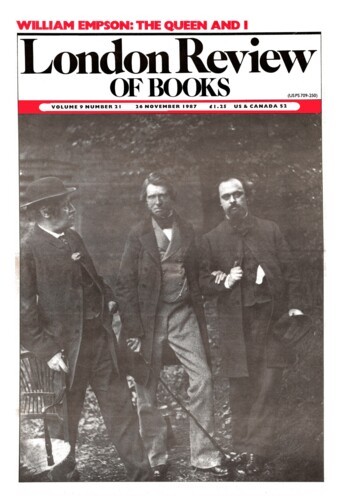The Koreans and their Enemies
Jon Halliday, 17 December 1992
Over the past year evidence has been emerging that the Japanese kidnapped more than 200,000 young women into sex slavery during their occupation of East Asia. Those so enslaved were termed ‘comfort women’, about 80 per cent of whom were Korean. Some were as young as 12, hauled out of their schools, often under a quota system, and carted off to army barracks and outposts all the way from Manchuria to the South Pacific. All suffered indescribable brutality and hardship, and untold numbers died in frontline trenches. Almost none would ever return to their homes. So far no compensation has been paid for these atrocities, on the grounds that Japanese reparations to Korea for the occupation period (1910-45) were settled once and for all in the 1965 agreement which normalised relations between Tokyo and Seoul. The kidnappings, like many other outrages, are not mentioned in Japan’s official school textbooks.




